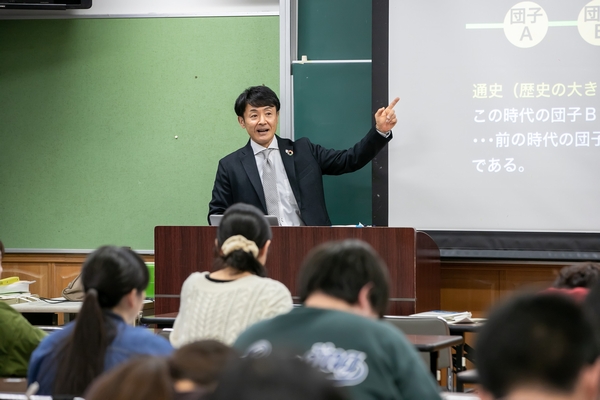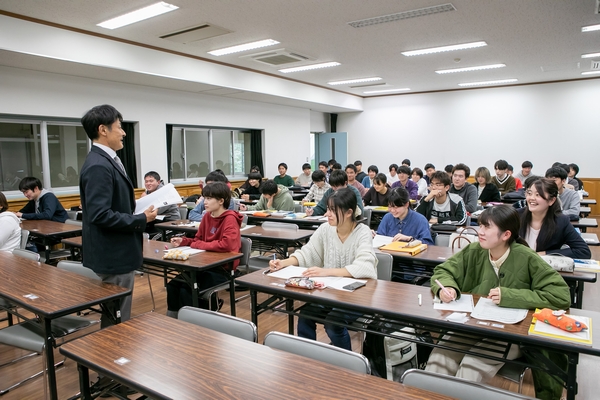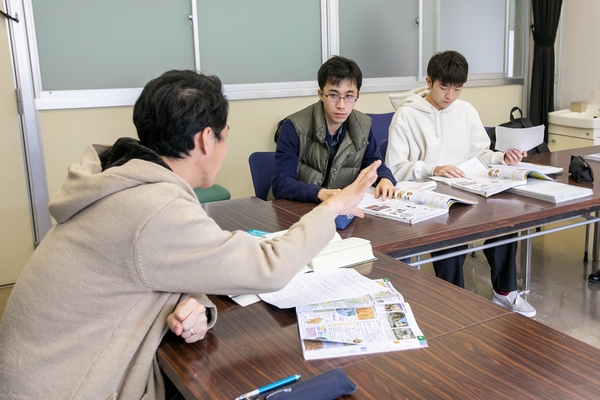●Social Science Education Research
●Introduction to Sociology
●Introduction to History
●Introduction to Economics
●Introduction to Geography
●Introduction to Philosophy
●Introduction to Legal Studies
●Introduction to Political Science
Social Studies
Learn, Reflect, Engage, Communicate:
Individuals, Society, Japan, and the World

In the Social Science major, you will study both Social Science Education, which deals with the purpose, content, and teaching methods of the subject of social science, and the various specialized fields of social science (history, geography, social sciences, philosophy). Understanding the purpose of the subject of social science, being able to convey the diversity and depth of contemporary society to students, and nurturing the ability to live in such a society requires proficiency in both areas. In this major, you will unravel the complexities of modern society from an academic perspective, and become able to confidently discern the rapidly changing face of society and an educator with practical skills who fosters students with a strong social awareness. Why not join us on this journey in the Social Science major?
Characteristics of Major
Social science encompasses a wide range of content that spans multiple departments in general universities. For example, history is taught in the literature department, political science in the law department, economics in the economics department, and physical geography in the science department. One of the characteristics of the Social Science major is the ability to simultaneously study various specialized fields of social science; it is not just about learning specialties. The reason many disciplines come together under the umbrella of social science is to enable students of this subject to acquire a broad range of skills to navigate contemporary society and become able to contribute to building a better society for the future. Understanding this comprehensive nature of social science, you will study the power of an educator facing students, focusing on social science education, including “Social Science Education Research.”
Curriculum Features
Fostering Creators for an Active Society
In the first and second years, students will learn the fundamentals of each field through required courses. The fields include history (Japanese history, Oriental history, Western history), geography (physical geography, human geography), social science (political science, law, economics, sociology), and philosophy. A comprehensive understanding of these fields, as well as social science education to develop teaching skills, is covered in the “Foundations of Social Research” course. In the third year, students connect their previous learning to practical teaching through educational practice. Additionally, students choose a research topic based on their individual interests within the broad content of social science and engage in a graduation research project. To deepen their understanding of each field, from the third year onwards, students actively participate in specialized lectures, exercises, and practical training to conduct research independently.
-
Main Subjects of Study
-
Obtainable Teaching Licenses and Qualifications
●Junior High School Teaching License (Social Studies)
●High School Teaching License (Geography, History, or Civics)





